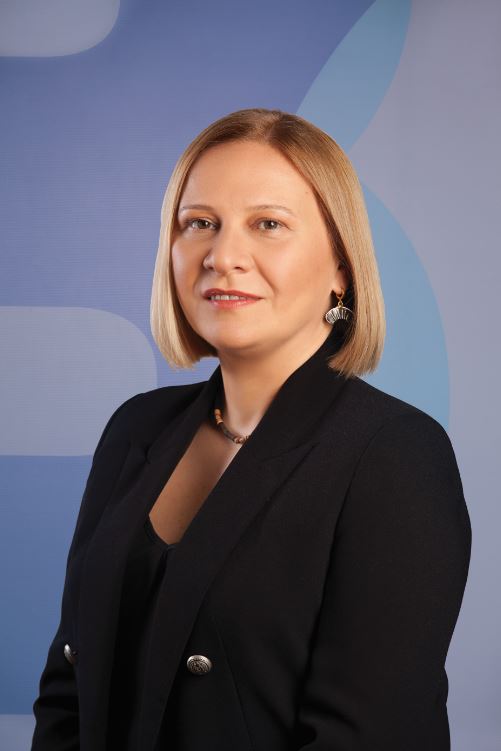Sweden’s Support for the Development of a Sustainable and Inclusive Economy in Georgia
Interview with the Ambassador of Sweden to Georgia, Anna Lyberg
How does Sweden’s seven-year strategy for cooperation with Eastern Europe (2021-2027) support Georgia to foster inclusive and sustainable economic growth, and what are the main sectors and projects that are implemented under this strategy?
Sweden’s strategic commitment to Georgia encompasses a multifaceted approach aimed at fostering comprehensive development across diverse sectors. Rooted in principles such as human rights, democracy, and gender equality, Sweden’s strategy underscores its dedication to advancing sustainable economic growth, transparent governance, and environmental resilience in Georgia. The integration of Georgia into the EU is a central theme, evident in the support for the implementation of the association agreement and for the broader reform agenda. As we delve into the specifics of ongoing bilateral projects, it becomes apparent how Sweden’s strategic priorities seamlessly align with the nuanced needs of Georgia, contributing to its progress in key areas and reinforcing the ties between our countries.
The Swedish commitment to inclusive economic development is evident through our strategic collaborations and projects that contribute to sustainable growth across diverse sectors. Initiatives like the portfolio guarantees with TBC Bank and with MFO Crystal, the latter which is a partnership between Sida and DFC, actively promote the development of micro-, small-, and medium-sized enterprises (MSMEs) in sectors such as agriculture, manufacturing, and services. These projects strategically align with the Deep and Comprehensive Free Trade Agreement (DCFTA) with the EU, unlocking the full potential of these sectors and fostering economic integration. Another example is the “Leadership for Sustainable Development in Georgia”, implemented by the UN Global Compact Network Georgia. It illustrates how Sweden works to bring together the business community, government, and NGOs to jointly play advance sustainable economic growth.
We are also proud to support important multi-donor initiatives such as the “Alliances Caucasus Program”, implemented by Mercy Corps. The program focuses on improving livelihoods for rural producers, emphasizing sustainable productivity, resilient market access, and equitable inclusion locally. Furthermore, projects like the “Promoting Georgia’s Green and Inclusive Development” and “Support to the Food Safety and SPS Sector in Georgia”, implemented by the Food and Agriculture Organisation (FAO), play important role roles in fostering sustainable market practices. They also address environmental and food safety standards, in alignment with EU integration goals.
With these collaborative endeavors our aim is to strengthen our multifaceted approach, driving inclusive economic development and supporting Georgia’s strategic objectives across various sectors, in line with the overarching principles of Sweden’s international development cooperation and Georgia’s EU integration.
With the support of the Swedish government, an assessment of Georgia’s circularity level was conducted, aiming to outline key findings, recommendations, and steps for a successful transition. What are the main discoveries, and what actions and responsibilities should Georgia, especially the business sector, undertake for an effective shift to a circular economy?
I would like to underline the importance of recognizing that a circular economy is key for reducing environmental impact, conserving resources, and promoting economic resilience. Sweden’s support in this area the signifies a commitment to the shared values within the EU. Circular practices not only enhance environmental sustainability but also align with the principles of the DCFTA between Georgia and the EU. The findings of this assessment shed light on key sectors, and outline a roadmap for sustainable economic growth and integration. The current level of circularity has been estimated as 1.3%, which provides a clear baseline for improvement and offering ample opportunities to progress towards a more circular economy in Georgia.
A successful transition to a circular economy demands strategic measures, and a legislative framework that guides and enforces circularity, waste reduction, and resource efficiency is a prerequisite to achieving. It is also imperative to generate investments from state as well as private actors in robust recycling infrastructure, waste management systems, and innovation hubs. Furthermore, all initiatives should be implemented in parallel with education programs that foster public awareness and engagement.

The Swedish commitment to inclusive economic development is evident through our strategic collaborations and projects that contribute to sustainable growth across diverse sectors. Initiatives like the portfolio guarantees with TBC Bank and with MFO Crystal, the latter which is a partnership between Sida and DFC, actively promote the development of micro-, small-, and medium-sized enterprises (MSMEs) in sectors such as agriculture, manufacturing, and services. These projects strategically align with the Deep and Comprehensive Free Trade Agreement (DCFTA) with the EU, unlocking the full potential of these sectors and fostering economic integration. Another example is the “Leadership for Sustainable Development in Georgia”, implemented by the UN Global Compact Network Georgia. It illustrates how Sweden works to bring together the business community, government, and NGOs to jointly play advance sustainable economic growth.
The business sector bears significant responsibility, necessitating the integration of circular practices in production, supply chains, and waste management, taking into consideration and addressing new challenges such as climate mitigation and adaptation but also the impact on future operations including social- and governance issues.
Collaboration among businesses, government, and NGOs is thus important to amplify impact. To be successful Georgia must align its policies with EU standards, ensuring a harmonized approach for regional and EU integration. In essence, a collective effort, underpinned by legislation, infrastructure development, and corporate commitment, will drive Georgia toward a sustainable and circular future.
What are the benefits and challenges of sustainable finance for the development of the investment climate in Georgia, and what are the best practices and examples from Sweden and other EU countries that Georgia can learn from?
Sustainable finance presents a strategic opportunity for Georgia. It is not just about aligning with global trends, but also about attracting a niche in the growing sustainable investment market. This approach can significantly enhance Georgia’s attractiveness to foreign investors who prioritize sustainability, fostering a more resilient and innovative economic environment.
The challenge, however, lies in cultivating local expertise and awareness in sustainable finance, as well as in developing a regulatory framework that supports these initiatives. Moreover, the transition to sustainable practices, including the integration of comprehensive environmental, social and governance (ESG) data, demands both time and resources, which can be particularly challenging for smaller enterprises.
Drawing on experiences from Sweden and other EU countries, Georgia can adopt and adapt various strategies. For instance, Sweden’s success with green bonds offers a blueprint for mobilizing funds for sustainable projects. The EU’s emphasis on transparency and sustainable finance disclosure through the Corporate Sustainability Reporting Directive (CSRD) and the EU taxonomy can guide Georgia’s path to regulatory certainty and investor trust.
However, Georgia must of course chart its own course, drawing on these examples but tailoring them to its unique socio-economic and cultural context. For instance, leveraging its rich natural resources in sustainable projects can be a distinctive strategy. Similarly, public-private partnerships and educational initiatives should be customized to suit Georgia’s specific needs and aspirations. In essence, the journey towards sustainable finance is as much about embracing global best practices as it is about innovating and leading in ways that are authentically Georgian.
What are the specific recommendations and suggestions that you have for businesses and governments in terms of sustainable finance and implementation of SDG Agenda 2030, and what is your vision for Georgia’s sustainable future?
For businesses in Georgia, embracing sustainable finance is not just a moral imperative; it is a strategic one. We know by experience that integrating sustainability into the core business strategy can have major benefits as it can cut costs, enable access to global value chains, improve reputation and attract talent. This means going beyond just compliance or corporate social responsibility initiatives to genuinely embedding environmental, social, and governance considerations into every aspect of operations and decision-making.
Ultimately, the sustainability strategy will have to be customized and integrated by each business. In terms of the SDG Agenda 2030, this provides an excellent framework for businesses to identify and focus on those goals that align most closely with their operations. For instance, if a company is in the agriculture sector, SDGs related to sustainable agriculture, hunger, and land use would be most pertinent. The key is not just to contribut
e to these goals but also to innovate around them, turning challenges into opportunities for sustainable growth.
For the government, the role is two-fold. Firstly, to create an enabling environment through policies, incentives, and a regulatory framework that encourages and supports sustainable practices in the business community. Secondly, the government should lead by example, integrating SDGs into national policies and public sector projects.
In the context of Georgia’s sustainable future, Sweden has made significant strides in collaboration with Georgia and the EU, as well as an Austrian partnership on sustainable mountain tourism development. Notably, the Green Economy: Sustainable Mountain Tourism and Organic Agriculture (GRETA) project. This partnership has successfully brought to life the comprehensive Svaneti Tourism Development Strategy and Action Plan. This document serves as a valuable resource, providing recommendations and guidelines for sustainable tourism growth. Its audience includes tourism industry professionals, local and national government representatives, the Svaneti Destination Management Organization (DMO), and development agencies. Georgia is uniquely positioned to leverage its cultural and natural heritage to carve out a niche in the global sustainable economy. As such, it has the potential to become a model for sustainable tourism, renewable energy, and sustainable agriculture. By focusing on these areas, Georgia can not only achieve its SDG targets but also drive economic growth, create jobs, and improve the quality of life for its citizens.
Looking forward, my vision for Georgia, on its path to EU integration following an important decision by the EU in December 2023, is to see Georgia paving its way towards a more sustainable future, hand in hand with Europe and with the support of its friends.




 Search
Search





